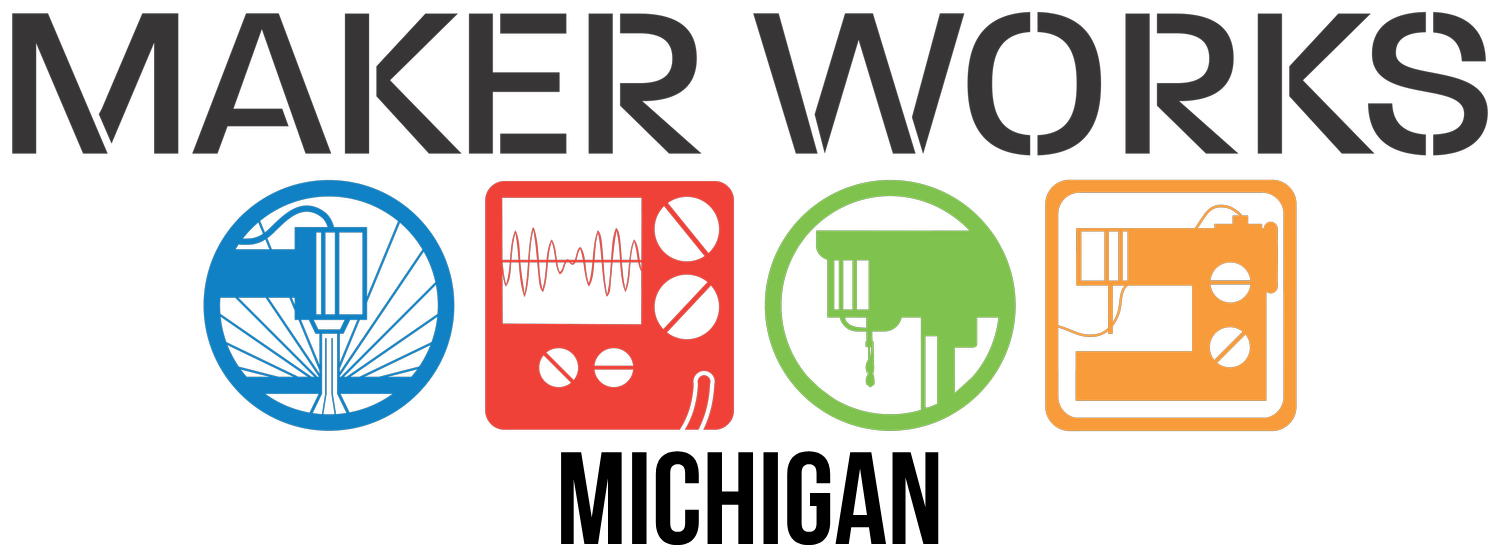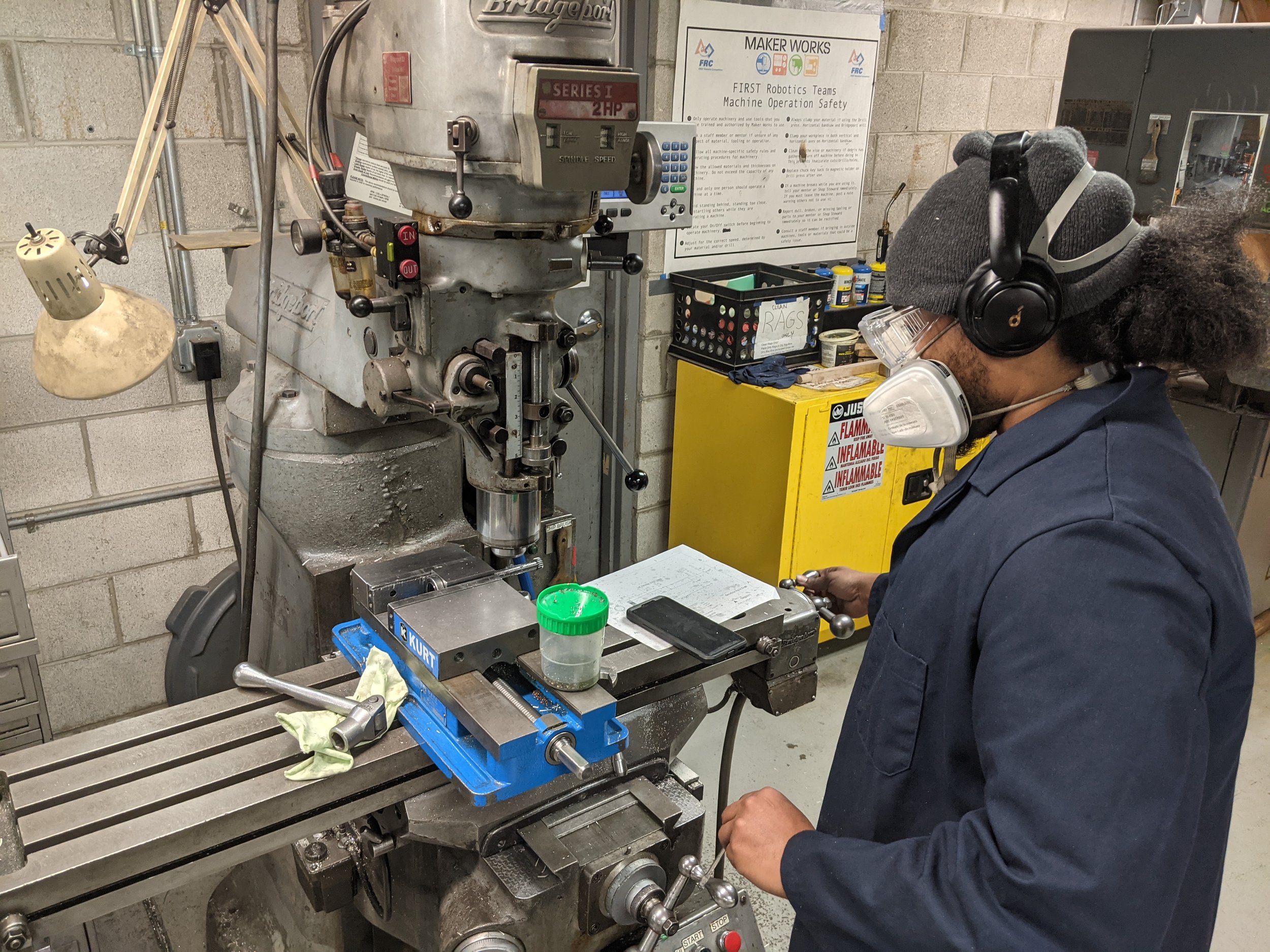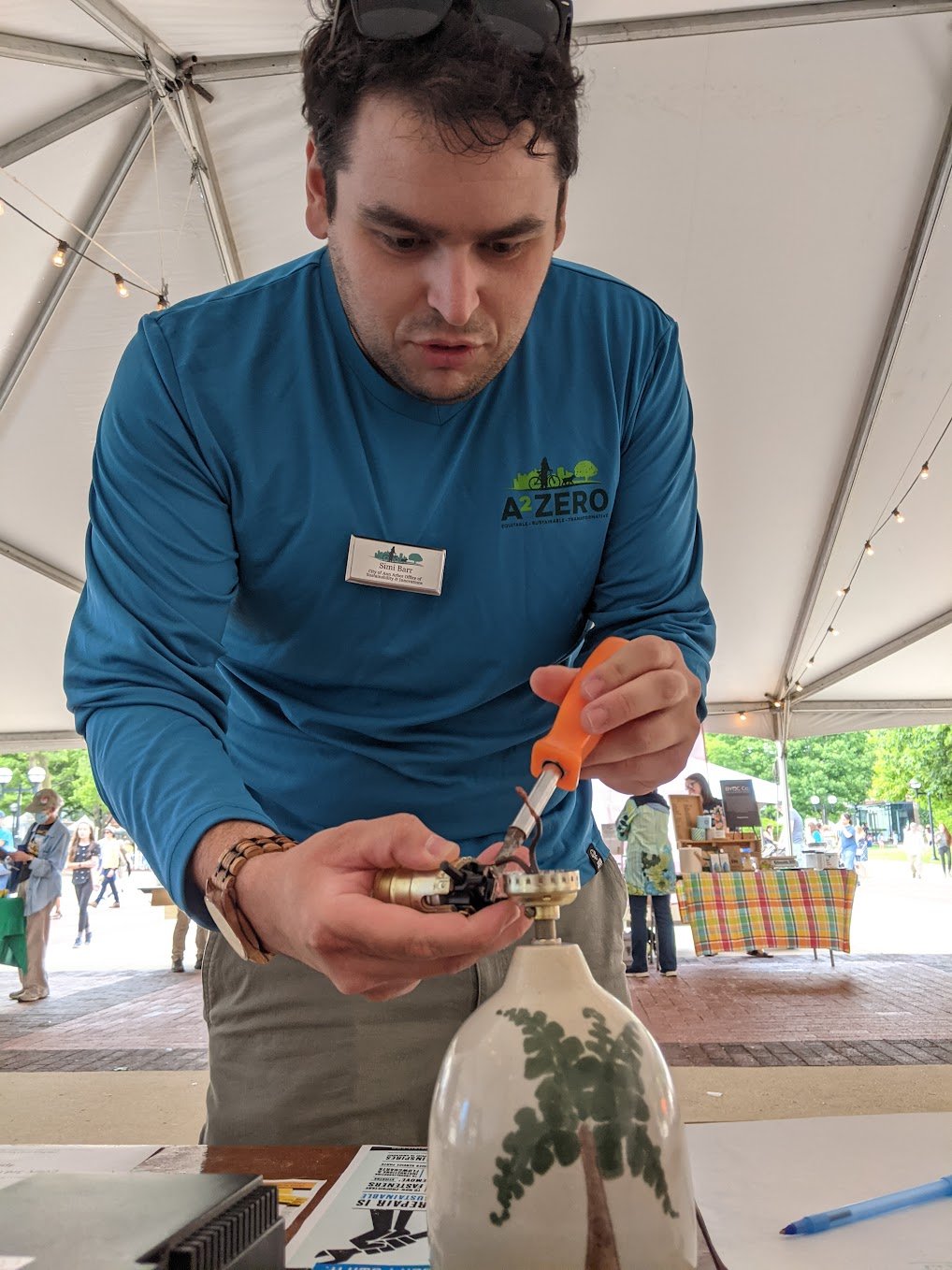What if…
What if there was a place in Washtenaw County where anyone could walk in and learn to use a tool to make the thing they wanted? What would that look like if it had some fancy tools, quality training, and space to work?
It could be a community that empowers artists like Laura Earle and Gabriel Urist to create socially conscious communities of art. One that helps people like University of Michigan Stamps alumna Erika Cross go from a talented graduate to Best in Show at the NYCxDesign Awards. Or when a pandemic shuts down access to his lab at EMU, Kevin Purify is able to continue his studies.
Perhaps it could work with kids, providing ‘first swing’ of a hammer opportunities to thousands of kids every year. Introducing “yes-you-can” opportunities of creation through activities like Intro to Household Tools, birdhouse building, and racing small cars down a track.
They could partner with the local high school FIRST Robotics Teams to provide greater access to tools, technology, and space to build their robots. Some of these teams would make it to the world championships, and many of the students would be hired by local engineering firms.
It could enable companies like Nostrum and Nimbus to research and prototype in a cost effective environment, with access to a community of talented makers capable of using the latest technology. Or two fresh college grads with an idea, kickstarting their business to success using tools they only could have dreamed of without access to this facility.
It would only be natural that this place would honor repair and reuse before recycle, and long before ‘replace’. They would run regular events, call them “Fix-It-Friday” that help reduce the waste in the environment and rebuild a community of righty-tighty lefty-loosey tool users. Everything from picture frames, pachinko machines, electric scooters, and broken chairs would be given a second life and kept out of the landfill.
After some inspiring work with a local Tinker Toy Tech group that runs annual events adapting toys for accessibility, they’d start a recurring monthly Toy Adaptation event where parents and kids could come to freely adapt their toys.
In their spare time, some members would find themselves building Sensory Chairs, Foster Care Beds, and Braille Calculators for the community.
While we’re dreaming, it could be a shop that understands both tools and a welcoming culture. It would constantly improve to be more accessible, affordable, and welcoming regardless of age, gender, race, sex, or ability.
But we’re not dreaming. This is what happens at Maker Works.






